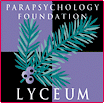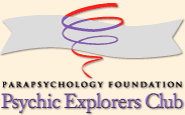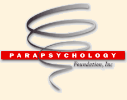 |
 |
| THE BIOGRAPHICAL DICTIONARY OF PARAPSYCHOLOGY HANS DRIESCH Embryologist, philospher. B. October 28, 1867, Bad Kreuznach, Germany; d. April 16, 1941, Leipzig. Ph.D., 1889, Jena University. Research, experimental embryology, Trieste, 1891, Naples Zoological Laboratory, 1891-1900; Gifford Lecturer, Aberdeen University, 1907-08; lecturer, London and Cambridge universities, 1913; professor of philosophy, University of Cologne, 1919-21; lecturer, University of Leipzig, 1922-1933 (retired under Nazi pressure after his support of Jewish scientists, attacked by nationalist students). Dr. Driesh's twin interests, science and philosophy, led indirectly to his concern with psychic research. As an embryologist he discovered -- in experiments with the mutilated eggs of various froms of marine animals -- evidence that he believed disproved a mechanistics theory of the development of life from the cell. He espoused instead the teleological theory that a purposive striving exists in each living cell which is directed toward the emergence of a whole organism in its species. As a philosopher his concepts arose from this scientifically based evidence. Asked to lecture on his theory of "vitalism" at Cambridge University, he met there Mrs. Henry Sidgwick (q.v.) and through her became interested in the study of psychic phenomena. He joined the Society for Psychical Research, London, in 1913, and was its president in 1926-27. Invited to lecture on philosophy by universities throughout Europe, Britain, the United States, South America and the Far East, Dr. Driesch on his trips found time to meet and in some cases work with widely scattered pioneers in the field of psychic research: Walter Franklin Pierce (q.v.) in Boston, Gustav Geley and Eugene Osty (qq.v.) in Paris, oliver Lodge (q.v.) in Britain, Alber von Schrenck-Notzing (q.v) in Germany, and many others. He sat with such mediums as "Margery," Mrs. Osborne Leonard and Willi and Rudi Schneider (qq.v.). Although impressed by Ms. Leonard and the Schneiders, Dr. Driesch was not always convinced of the genuineness of mediumistic phenomena. According to Gerda Walther (q.v.) in the article "Hans Driesch, Pioneer Researcher" (Tomorrow, Spring 1962), "He was somehow uneasy about physical phenomena, more so than [about] mental phenomena." Dr. Driesch's best known philosophical works include Philosphy of the Organism (1908); Ornungslehre (Method Teaching; 1912, 1923); Leib und Seele (Body and Mind, 1916); THe Crisis in Psychology (1925; German ed., Grundprobleme der Psychologie, 1926). In the field of parapsychology he contributed to Zeitschrift für Parapsychologie and the SPR Proceedings, and wrote the lecture "Psychical Research adn Established Science" (SPR presidental address, 1926), and the paper "Biologie et Métapsychique" (Congrés International de Recherches Psychiques, 1927). His books in this field include Wirklichkeistslehre (Reality Teaching, 1930); Parapsychologie, die Wissenschaft von den "okkulten" Erscheinungen" (Parapsychology,Science of "Occult" Phenomena, 1932; 3rd. ed., 1952); and "Alltagsraetsel des Seelenlebens (Everday Enigmas of the Mind, 1938). When he was forced by the Nazis to retire from teaching, Dr. Driesch devoted himself to his writing, including a translation into German of New Frontiers of the Mind by J.B. Rhine (q.v.). See Memoris of Hans Driesch (1951). Taken from Helene Pleasants (1964) Biographical Dictionary of Parapsychology with Directory and Glossary 1946-1996 NY: Garrett Publications |
 |

|
 www. parapsychology. org |
||